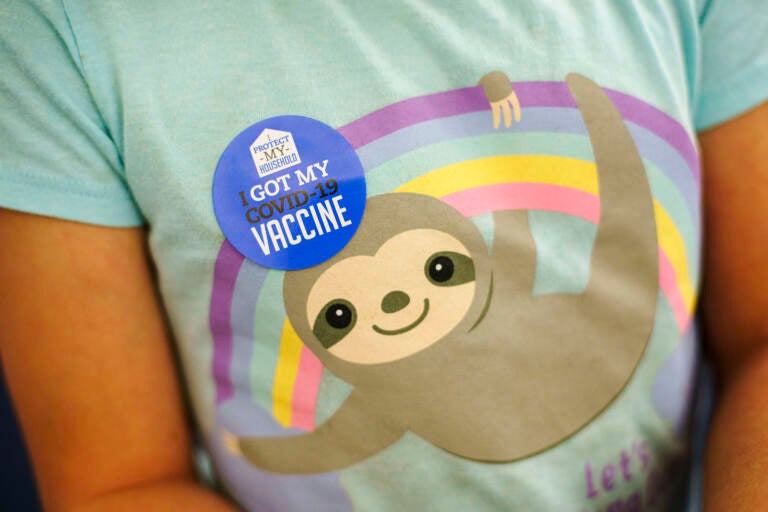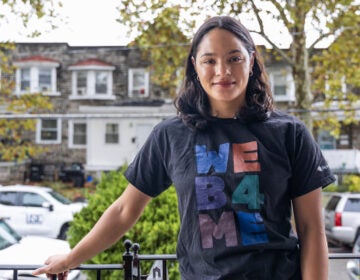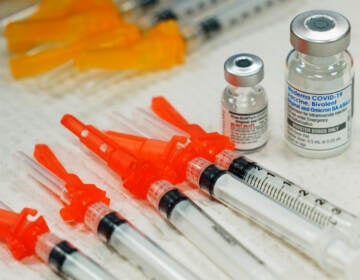Philadelphia lags behind nationwide average in vaccination rate for children
Even as some parents may hesitate, the evidence indicates that the doses for children — which are lower than those for adults — are safe and effective.

Julia Breguet, 8, wears a sticker on her shirt after receiving the Pfizer COVID-19 vaccine for children ages 5-11. (AP Photo/David Goldman)
The CDC recommended kids ages 5 to 11 get the Pfizer COVID vaccine more than two weeks ago. But so far, fewer than 6% of Philadelphia children in this age group have gotten their first dose. That’s lower than the nationwide average of around 10%.
But the city’s Department of Public Health spokesperson James Garrow said he is not overly concerned about the rate because Philly’s numbers keep ticking up.
“Slow and steady wins the race in this,” Garrow said. “There’s lots of opportunities for folks to get vaccinated.”
The number of kids that got their first shots in Philly grew rapidly about a week after the CDC’s approval, but that rate of increase has now stabilized.
Garrow said it’s too soon to say whether vaccination rates will remain low in this age group. But he thinks one factor contributing to the slow start is where parents are getting their children vaccinated.
“A lot of people are not interested in taking their child to a pharmacy or to one of these walk-up clinics,” Garrow said. “They want to go to the pediatrician that their child already knows and that they trust, and these pediatricians are setting their own appointments, … and that takes time.”
Garrow noted that parents may also want to wait and see how the pediatric vaccine works out.
“I think that there is a significant number of people that want to see how it goes and make sure that this works OK, and this vaccine proves to be as safe and effective as the adult vaccines,” he said.
The Health Department spokesperson said evidence to date indicates that the doses for children — which are lower than those for adults — are safe and effective.
“If you’re worried about your child getting COVID, you can turn it into a much less serious case and also potentially prevent the spread to other children, to other unvaccinated people,” he said.
Vaccine doses for children are available at city-run vaccine clinics, most pharmacies, and many pediatricians’ offices.
The Philadelphia School District is also organizing vaccination clinics.
The majority of Philadelphia children who have gotten the inoculation have done so at a pharmacy with smaller numbers of children receiving shots at hospitals, doctors’ offices, and at community venues.
While the city and school district have worked to make the vaccine widely accessible even in areas that tend to be underserved, the same racial disparities that were seen when the vaccine rolled out for adults appear to be manifesting in younger populations. More than one-third of doses given to 5-11 year olds went to white children while only 15% went to Black children and smaller shares to those of Hispanic and Asian descent.
WHYY is your source for fact-based, in-depth journalism and information. As a nonprofit organization, we rely on financial support from readers like you. Please give today.






